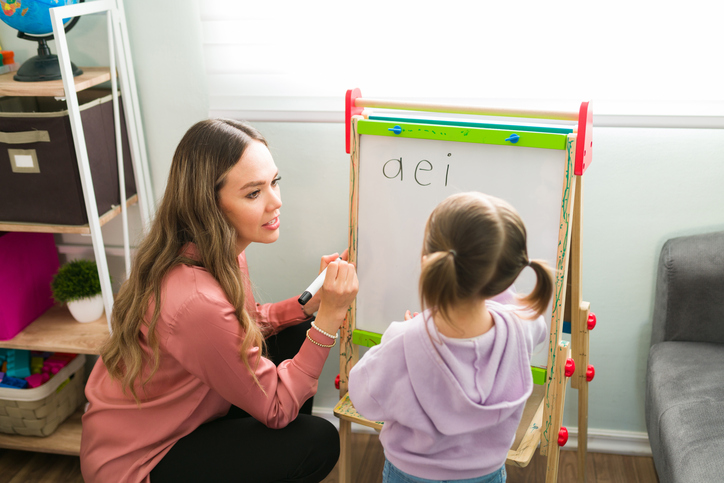Traditionally, many people considered the three core subjects for elementary school-aged children to be reading, writing, and arithmetic—and, while all three are clearly important, to read well, children first need to learn the correct way to spell.
 In most states, school standards don’t, ReadingRockets.com notes, specify how well a child should be able to spell. In fact, writing tests may not even take spelling into account when scoring a piece of writing on state tests. So, it can be hard to know how well students today can spell—yet research shows how the underlying skills need for spelling and reading are remarkably the same. A strong relationship also exists, the article notes, between spelling and writing.
In most states, school standards don’t, ReadingRockets.com notes, specify how well a child should be able to spell. In fact, writing tests may not even take spelling into account when scoring a piece of writing on state tests. So, it can be hard to know how well students today can spell—yet research shows how the underlying skills need for spelling and reading are remarkably the same. A strong relationship also exists, the article notes, between spelling and writing.
Here are some ways to make spelling fun.
Spelling Games
 Having your child spell a word aloud helps but, to really improve spelling skills, consider adding games into your repertoire. VeryWellFamily.com shares fun ways to teach your child how to spell unfamiliar words, including flashcard games.
Having your child spell a word aloud helps but, to really improve spelling skills, consider adding games into your repertoire. VeryWellFamily.com shares fun ways to teach your child how to spell unfamiliar words, including flashcard games.
Western Governors University describes a way to turn index cards or pieces of paper into a game of Concentration that’s designed for two or more people. You could, for example, pick ten spelling words and make two sets of each word. Mix them up; flip them upside down; and let Child A choose two cards to turn over. If they match, the child gets to keep the cards and take another turn. If not, Child B gets a turn.
Children play the game until participants claim all cards—after, of course, they’ve successfully matched words—with the winner having the most sets. One child can play this game for practice, a game that helps with spatial memory as children try to remember where they last saw a card that needed to be turned back down because they didn’t find a match.
Spelling Books Help Children Learn
Find age-appropriate word search books so children can enjoy finding words (correctly spelled ones!) without pressure. Or print out free children’s crossword puzzles. You can also ask your child’s teacher or a local children’s librarian for books that can help make learning how to spell fun.
print out free children’s crossword puzzles. You can also ask your child’s teacher or a local children’s librarian for books that can help make learning how to spell fun.
For younger elementary school students, games and puzzles found in the Word Detective series may spark an interest in learning how to spell well. For older elementary school students, consider The Everything Kids' Spelling Book: Spell your way to S-U-C-C-E-S-S!—written by Shelley Galloway Sabga who has a master of arts degree in education.
Going Online
Plenty of spelling games also exists online with Education.com recommending dozens of them. In Sight Words Memory, kindergarteners can enjoy the memory game described directly above in a virtual setting with guidance from Penelope the Pegacorn.
DinoBones.com, as another example, is designed for fourth graders. Fifth graders, meanwhile, who are seeking more challenging adventures can tackle spelling longer words with Floyd Danger. As children gain confidence in spelling, they will likely begin to feel the same about the two related skills: reading and writing.
Trace Words To Teach Your Kids How To Spell
To help a child who may be behind in spelling abilities, ChildInfoDevelopment.com suggests that you allow children to trace words, helping as needed so that they can feel their way through words. Or they may enjoy fingerpainting words and learning to spell in the process.
Have fun!










